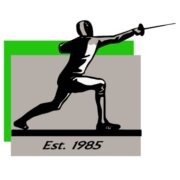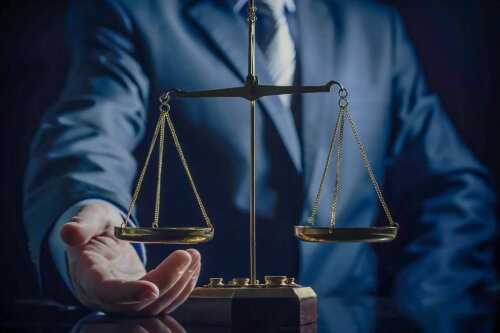Best Juvenile Law Lawyers in White River
Share your needs with us, get contacted by law firms.
Free. Takes 2 min.
List of the best lawyers in White River, South Africa
About Juvenile Law in White River, South Africa
Juvenile law in White River, South Africa, focuses on the legal matters that concern children and young persons under the age of 18. The law is designed to protect the rights and welfare of minors, both as victims and as accused persons. The Children’s Act 38 of 2005 and the Child Justice Act 75 of 2008 are the primary statutes governing juvenile legal matters, supported by constitutional protections. These laws ensure that children are treated differently from adults in the legal system, emphasizing rehabilitation, protection, and the best interests of the child.
Why You May Need a Lawyer
There are several situations in which individuals or families in White River may require legal assistance within the field of juvenile law. Common scenarios include:
- Your child is accused of committing a crime and is facing charges in the child justice system.
- A minor has been removed from your care due to allegations of abuse, neglect, or safety concerns.
- You are involved in a custody or guardianship dispute affecting a minor.
- Adoption, foster care placements, or issues regarding parental rights arise.
- A child is a victim or witness in criminal proceedings.
- There are concerns about access to education, healthcare, or other constitutional rights for a child.
In these and similar circumstances, a lawyer experienced in juvenile law can help protect the child’s rights, navigate the legal process, and advocate for the child’s best interests.
Local Laws Overview
Juvenile law in White River is governed by national legislation, interpreted and applied by local courts and authorities. Here are some key aspects:
- The Child Justice Act 75 of 2008: Provides procedures for dealing with children in conflict with the law, emphasizing diversion programs, restorative justice, and avoiding detention where possible.
- The Children’s Act 38 of 2005: Sets out the rights of children, parental responsibilities, and processes for care, protection, adoption, and foster care.
- Age of Criminal Capacity: Children under 10 cannot be arrested or prosecuted. Children aged 10-14 are presumed not to have criminal capacity, although this presumption can be challenged.
- Detention and Diversion: The law encourages the use of diversion programs and the avoidance of formal criminal records for juveniles. Detention is only used as a measure of last resort.
- Best Interests of the Child: All legal decisions regarding children must be made with the best interests of the child as the primary consideration.
- Specialized Courts: Child Justice Courts and Children’s Courts handle matters relating to juveniles.
Frequently Asked Questions
What age is considered a juvenile in South African law?
A juvenile is anyone under the age of 18 years old, according to the Child Justice Act and the Children’s Act.
Can my child be arrested and detained by the police?
Children under 10 cannot be arrested. Children aged 10-18 can be arrested but should only be detained as a last resort. The law requires the use of alternatives to detention whenever possible.
What happens if a child is accused of a crime?
If a child is accused, a preliminary inquiry will be held to decide whether to divert the matter away from formal court or proceed to trial in a Child Justice Court, considering the best interests of the child.
What does “diversion” mean in juvenile law?
Diversion involves referring a child away from traditional criminal justice processes to programs focused on rehabilitation, life skills, and restorative justice, aiming to prevent a criminal record.
How are the best interests of the child determined?
Courts consider the child’s physical and emotional needs, safety, education, and family circumstances when making decisions, always placing the child's welfare first.
Can a child have legal representation during court proceedings?
Yes, children have the right to legal representation, and the state will provide a legal aid lawyer if the family cannot afford one.
What is the role of the Children’s Court?
The Children’s Court handles cases related to child protection, foster care, guardianship, adoption, and other matters affecting the welfare of children.
What should I do if my child is removed from my care?
Seek legal advice immediately. You have the right to a fair hearing, and the authorities must explain the reasons for removal and allow you to respond in court.
What rights do parents have when their child is in trouble with the law?
Parents have the right to be informed, to attend hearings, and to participate in proceedings involving their child. They also have the right to seek legal representation.
How can I report child abuse or neglect in White River?
You should contact the South African Police Service (SAPS), the local Department of Social Development office, or Childline South Africa to report any concerns of child abuse or neglect.
Additional Resources
For assistance and more information related to juvenile law in White River, consider contacting or consulting the following:
- Department of Social Development: Handles care, protection, and placement of children in need.
- South African Police Service (SAPS): Child Protection Units investigate crimes against children.
- Legal Aid South Africa: Provides free legal services to qualifying individuals and children.
- Childline South Africa: Offers counseling, legal advice, and reporting services for children and families.
- Local court services: Children’s Court and Child Justice Court in White River and the Mpumalanga region.
- Community-based organizations: NGOs and social workers supporting children’s legal rights and welfare.
Next Steps
If you or your child are involved in a juvenile law matter in White River, it is crucial to act promptly to protect your rights and interests. Here are recommended steps:
- Gather all relevant information and documents related to the situation (such as police reports, court notices, or social worker correspondence).
- Contact a specialized juvenile law attorney or approach Legal Aid South Africa if you need assistance in finding a lawyer.
- If a child is involved with law enforcement, ensure their rights are respected and do not allow questioning without legal representation.
- Attend all meetings and hearings as required by the authorities or courts, and communicate openly with social workers and legal professionals.
- Seek support from local organizations and counseling services if needed.
- Remain focused on the best interests and welfare of the child at all times.
Taking timely, informed action and seeking professional advice will help ensure the best possible outcome in juvenile law matters in White River.
Lawzana helps you find the best lawyers and law firms in White River through a curated and pre-screened list of qualified legal professionals. Our platform offers rankings and detailed profiles of attorneys and law firms, allowing you to compare based on practice areas, including Juvenile Law, experience, and client feedback.
Each profile includes a description of the firm's areas of practice, client reviews, team members and partners, year of establishment, spoken languages, office locations, contact information, social media presence, and any published articles or resources. Most firms on our platform speak English and are experienced in both local and international legal matters.
Get a quote from top-rated law firms in White River, South Africa — quickly, securely, and without unnecessary hassle.
Disclaimer:
The information provided on this page is for general informational purposes only and does not constitute legal advice. While we strive to ensure the accuracy and relevance of the content, legal information may change over time, and interpretations of the law can vary. You should always consult with a qualified legal professional for advice specific to your situation.
We disclaim all liability for actions taken or not taken based on the content of this page. If you believe any information is incorrect or outdated, please contact us, and we will review and update it where appropriate.









